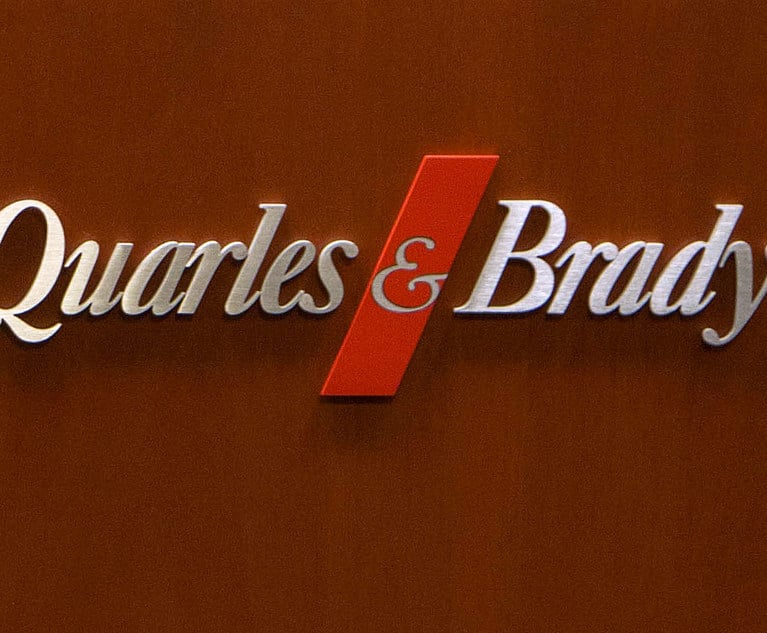Facebook Wins 'Right of Publicity' Case Against Country-Rap Singer
The unanimous ruling by a California appeals court reverses a decision critics had said undermined the ad-supported economic model of a whole host of internet companies.
August 09, 2017 at 08:21 PM
8 minute read
SAN FRANCISCO — In a win for internet and social media companies, a California court of appeal on Wednesday ruled that Facebook Inc. cannot be penalized for posting advertisements next to a user-generated page critical of the “country-rap” singer Mikel Knight.
The unanimous decision by a panel of the First Appellate District court overturns a trial court decision that critics had said undermined the ad-supported economic model of a whole host of internet companies and exposed them to a wave of “right of publicity” litigation.
“There are a lot of both statutes and doctrines designed to make it more difficult [for people] to challenge speech online about them that they simply don't like,” said Daniel Nazer, a staff attorney at the Electronic Frontier Foundation. “The lower court's ruling took the right of publicity and just drove a Mack truck through all of that. It's good to see it reversed.”
The legal battle between Facebook and Knight, whose real name is Jason Cross, arose after two vans operated by the singer's record label to promote his music were involved in separate traffic accidents in June 2014. The accidents had tragic consequences, leading to two deaths and one serious injury, according to the court ruling.
Not long after, a publicly available Facebook page called “Families Against Mikel Knight” was created, apparently by relatives of the victims. Knight requested that Facebook pull down the page, saying he and his promoters were receiving threats and that the page was impacting his business prospects, but Facebook declined. Knight sued in February 2016.
The San Mateo trial court dismissed several of Knight's claims under California's anti-SLAPP statute, saying the singer was unlikely to succeed on them because of the immunities granted to web forums under Section 230 of the Communications Decency Act. But it declined to do so for three other claims relating to right to publicity, holding open that Knight could succeed on claims that Facebook “used” his name and likeness by running unrelated ads next to the public page.
In overturning that decision, Acting Presiding Justice James Richman wrote for the panel that Knight's claims were “conclusory” and undermined by the rest of the allegations in his complaint.
“Knight has not even alleged—let alone shown—that any advertiser used his name or likeness. He thus cannot establish that anyone, let alone Facebook, obtained an advantage through use of his identity,” Richman wrote. “At most, Knight has shown that Facebook allowed unrelated third-party advertisements to run adjacent to pages containing users' comments about Knight and his business practices. This is insufficient.”
Joining the opinion were Justices Therese Stewart and Marla Miller.
Knight was represented by Mark Punzalan of Punzalan Law in San Mateo and Todd Cole of the Cole Law Group in Nashville. They could not immediately be reached for comment on Wednesday afternoon.
Natalie Naugle, associate general counsel at Facebook, said in a statement that the company is “pleased with the decision.” Facebook is represented by Perkins Coie and Durie Tangri in the litigation.
The trial court judge had also ruled that the right to publicity “protects a form of intellectual property,” and thus Section 230 immunity does not apply because of a carve-out in the law for IP — a notion that critics like the Electronic Frontier Foundation had challenged in an amicus brief. But the appeals court panel declined to address that issue because of its other findings.
SAN FRANCISCO — In a win for internet and social media companies, a California court of appeal on Wednesday ruled that
The unanimous decision by a panel of the First Appellate District court overturns a trial court decision that critics had said undermined the ad-supported economic model of a whole host of internet companies and exposed them to a wave of “right of publicity” litigation.
“There are a lot of both statutes and doctrines designed to make it more difficult [for people] to challenge speech online about them that they simply don't like,” said Daniel Nazer, a staff attorney at the Electronic Frontier Foundation. “The lower court's ruling took the right of publicity and just drove a Mack truck through all of that. It's good to see it reversed.”
The legal battle between Facebook and Knight, whose real name is Jason Cross, arose after two vans operated by the singer's record label to promote his music were involved in separate traffic accidents in June 2014. The accidents had tragic consequences, leading to two deaths and one serious injury, according to the court ruling.
Not long after, a publicly available Facebook page called “Families Against Mikel Knight” was created, apparently by relatives of the victims. Knight requested that Facebook pull down the page, saying he and his promoters were receiving threats and that the page was impacting his business prospects, but Facebook declined. Knight sued in February 2016.
The San Mateo trial court dismissed several of Knight's claims under California's anti-SLAPP statute, saying the singer was unlikely to succeed on them because of the immunities granted to web forums under Section 230 of the Communications Decency Act. But it declined to do so for three other claims relating to right to publicity, holding open that Knight could succeed on claims that Facebook “used” his name and likeness by running unrelated ads next to the public page.
In overturning that decision, Acting Presiding Justice James Richman wrote for the panel that Knight's claims were “conclusory” and undermined by the rest of the allegations in his complaint.
“Knight has not even alleged—let alone shown—that any advertiser used his name or likeness. He thus cannot establish that anyone, let alone Facebook, obtained an advantage through use of his identity,” Richman wrote. “At most, Knight has shown that Facebook allowed unrelated third-party advertisements to run adjacent to pages containing users' comments about Knight and his business practices. This is insufficient.”
Joining the opinion were Justices Therese Stewart and Marla Miller.
Knight was represented by Mark Punzalan of Punzalan Law in San Mateo and Todd Cole of the Cole Law Group in Nashville. They could not immediately be reached for comment on Wednesday afternoon.
Natalie Naugle, associate general counsel at Facebook, said in a statement that the company is “pleased with the decision.” Facebook is represented by
The trial court judge had also ruled that the right to publicity “protects a form of intellectual property,” and thus Section 230 immunity does not apply because of a carve-out in the law for IP — a notion that critics like the Electronic Frontier Foundation had challenged in an amicus brief. But the appeals court panel declined to address that issue because of its other findings.
This content has been archived. It is available through our partners, LexisNexis® and Bloomberg Law.
To view this content, please continue to their sites.
Not a Lexis Subscriber?
Subscribe Now
Not a Bloomberg Law Subscriber?
Subscribe Now
NOT FOR REPRINT
© 2024 ALM Global, LLC, All Rights Reserved. Request academic re-use from www.copyright.com. All other uses, submit a request to [email protected]. For more information visit Asset & Logo Licensing.
You Might Like
View All
'You Can’t Do a First Draft of Common Sense': Microsoft GC Jon Palmer Talks AI, Litigation, and Leadership

2 Years After Paul Plevin Merger, Quarles & Brady’s Revenue Up More than 13%

Southern California Law Firms Boast Industry-Leading Revenue, Demand Through Q3
Trending Stories
Who Got The Work
Michael G. Bongiorno, Andrew Scott Dulberg and Elizabeth E. Driscoll from Wilmer Cutler Pickering Hale and Dorr have stepped in to represent Symbotic Inc., an A.I.-enabled technology platform that focuses on increasing supply chain efficiency, and other defendants in a pending shareholder derivative lawsuit. The case, filed Oct. 2 in Massachusetts District Court by the Brown Law Firm on behalf of Stephen Austen, accuses certain officers and directors of misleading investors in regard to Symbotic's potential for margin growth by failing to disclose that the company was not equipped to timely deploy its systems or manage expenses through project delays. The case, assigned to U.S. District Judge Nathaniel M. Gorton, is 1:24-cv-12522, Austen v. Cohen et al.
Who Got The Work
Edmund Polubinski and Marie Killmond of Davis Polk & Wardwell have entered appearances for data platform software development company MongoDB and other defendants in a pending shareholder derivative lawsuit. The action, filed Oct. 7 in New York Southern District Court by the Brown Law Firm, accuses the company's directors and/or officers of falsely expressing confidence in the company’s restructuring of its sales incentive plan and downplaying the severity of decreases in its upfront commitments. The case is 1:24-cv-07594, Roy v. Ittycheria et al.
Who Got The Work
Amy O. Bruchs and Kurt F. Ellison of Michael Best & Friedrich have entered appearances for Epic Systems Corp. in a pending employment discrimination lawsuit. The suit was filed Sept. 7 in Wisconsin Western District Court by Levine Eisberner LLC and Siri & Glimstad on behalf of a project manager who claims that he was wrongfully terminated after applying for a religious exemption to the defendant's COVID-19 vaccine mandate. The case, assigned to U.S. Magistrate Judge Anita Marie Boor, is 3:24-cv-00630, Secker, Nathan v. Epic Systems Corporation.
Who Got The Work
David X. Sullivan, Thomas J. Finn and Gregory A. Hall from McCarter & English have entered appearances for Sunrun Installation Services in a pending civil rights lawsuit. The complaint was filed Sept. 4 in Connecticut District Court by attorney Robert M. Berke on behalf of former employee George Edward Steins, who was arrested and charged with employing an unregistered home improvement salesperson. The complaint alleges that had Sunrun informed the Connecticut Department of Consumer Protection that the plaintiff's employment had ended in 2017 and that he no longer held Sunrun's home improvement contractor license, he would not have been hit with charges, which were dismissed in May 2024. The case, assigned to U.S. District Judge Jeffrey A. Meyer, is 3:24-cv-01423, Steins v. Sunrun, Inc. et al.
Who Got The Work
Greenberg Traurig shareholder Joshua L. Raskin has entered an appearance for boohoo.com UK Ltd. in a pending patent infringement lawsuit. The suit, filed Sept. 3 in Texas Eastern District Court by Rozier Hardt McDonough on behalf of Alto Dynamics, asserts five patents related to an online shopping platform. The case, assigned to U.S. District Judge Rodney Gilstrap, is 2:24-cv-00719, Alto Dynamics, LLC v. boohoo.com UK Limited.
Featured Firms
Law Offices of Gary Martin Hays & Associates, P.C.
(470) 294-1674
Law Offices of Mark E. Salomone
(857) 444-6468
Smith & Hassler
(713) 739-1250







